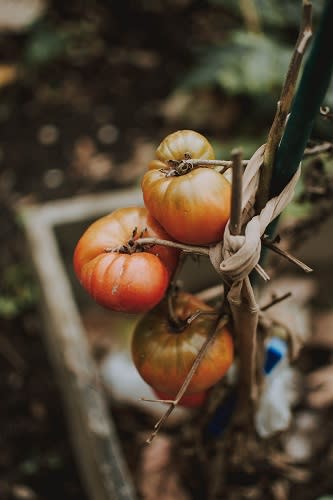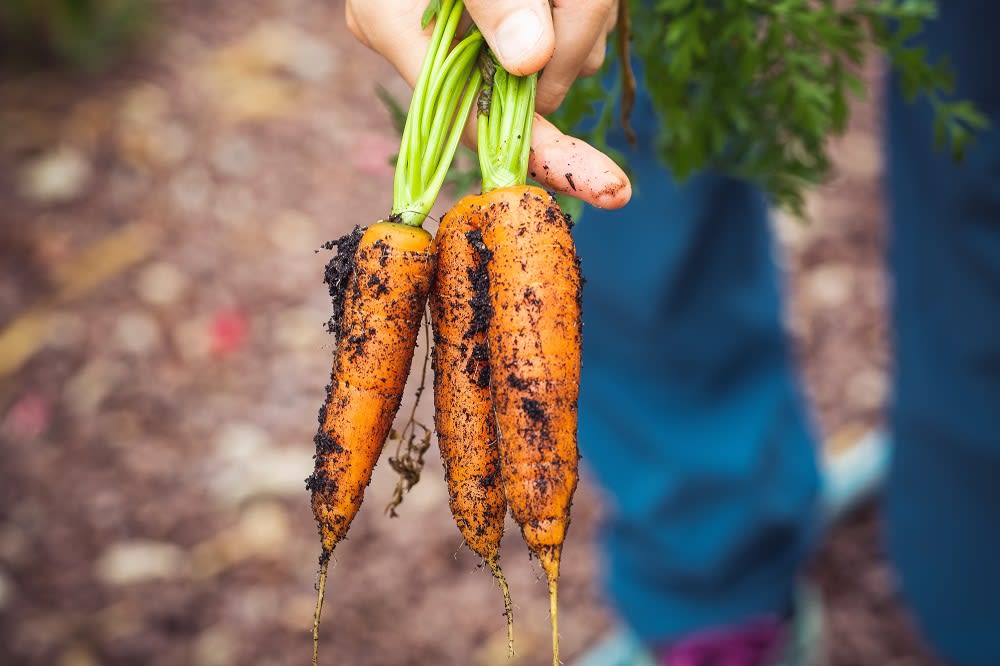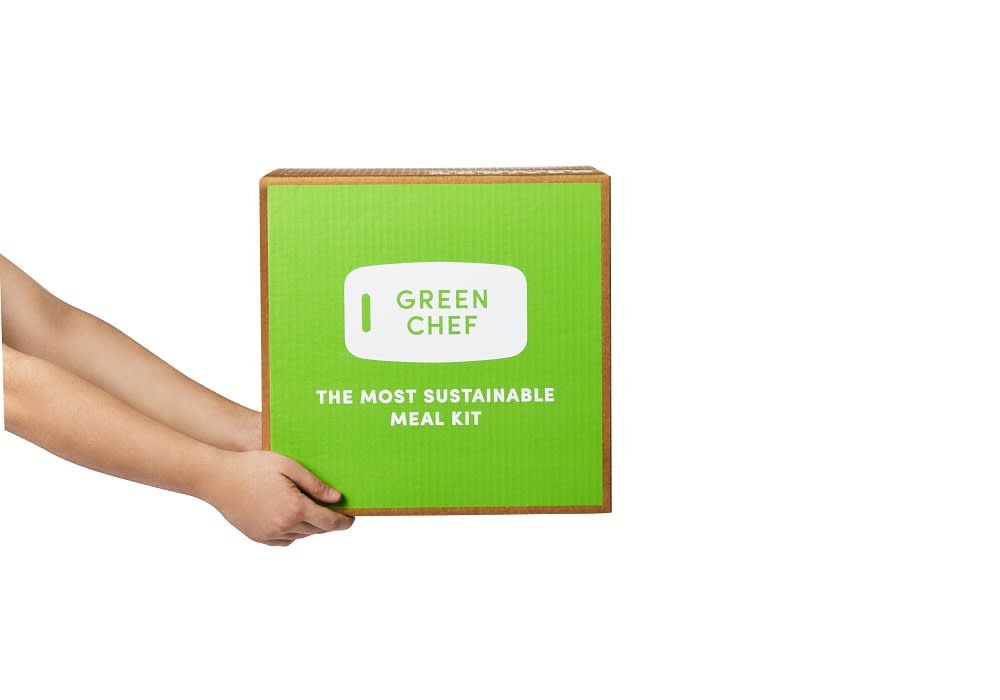
Organic Foods: What You Need To Know
Organic Foods: What You Need To Know
Organic Food 101
The word 'organic' gets thrown around a lot...but what does it really mean? There's a lot that goes into earning that 'organic' label. As a result, you'll often find that organic food tends to cost more than non-organic options. You might even have a smaller selection of organic produce and protein at your grocery store, depending on where you live. So, you might be wondering if the organic label is worth the price tag–or in some cases, the scavenger hunt.
Aside from having more health benefits, organic food is a great way to support your local economy, promote sustainable environmental practices, and make more humane food choices. Here, we'll cover all of the essential information you should know about organic food–from its definition to where to find it.

What Is Organic Food?
At its simplest definition, organic food contains no added hormones. For food to be certified organic by the USDA, it has to meet a variety of guidelines–including everything from soil quality to preservatives. For example, produce must be free of synthetic fertilizers and pesticides for three years before harvest. For meat, it can only be organic if the animals are raised without hormones. They must also be fed organic, and live in an environment that accommodates their natural behaviors such as grazing.Non-organic farmers often pump their livestock with hormones to speed up food production–but this can have negative effects on the consumer. There's actually an increased risk of cancer in humans who eat animal products that have been raised with hormones.
If you're shopping at a supermarket and want to buy packaged foods or snacks, you might notice that some items claim to be made with organic ingredients. They won't have the USDA organic seal but will contain at least 70% organically produced ingredients.

Is Organic Food Really Better for You?
Aside from supporting family farmers who practice sustainable production methods and being better for the environment (more on that later), organic food is generally better for your health. More broadly, organic food is generally fresher than non-organic food. The produce doesn't have preservatives to prolong its shelf life, so you know that all of those organic fruits and veggies at the market were very recently harvested.What Are the Benefits of Organic Food?
Organic food has more nutrients. Studies show that organic food includes more nutrients than non-organic food, including a higher amount of antioxidants in fruits and vegetables. Organic food also has increased amounts of vitamin C, iron, magnesium, and phosphorus.
Organic foods have more heart-healthy omega-3 fatty acids. You'll also find more omega-3s in organically raised meat, milk, and eggs. These heart-healthy fatty acids can help lower blood pressure, improve eye and brain health, and can potentially reduce the risk of heart-related issues (such as strokes and heart attacks).
An organic diet can decrease your risk of cancer. Other studies indicate that there is a lower risk of cancer in people who eat organic food. Glyphosate is a cancer-causing ingredient found in common pesticides, and since there are no synthetic pesticides in organic foods, you'll reduce your risk of cancer by eliminating it from your diet.
When you eat organic, you ingest fewer chemicals. Hundreds of chemicals are allowed in non-organic foods. So, when you eat organic, you won't have to worry about ingesting these potentially harmful chemicals.
An organic diet can help decrease your chance of developing resistance to antibiotics. Non-organic meat is often injected with hormones and antibiotics, which potentially contain antibiotic-resistant bacteria. You won't have to worry about this if you eat organic!
Organic food is also free of genetically modified organisms, or GMOs. GMOs can alter the DNA of plants in ways that don't occur in nature. Because of this, GMOs can make produce look suspiciously pretty. Plus, they can potentially cause harmful effects on humans. Since these kinds of genetic modifications are a newer development, there isn't a lot of data available regarding their long-term effects on human health. It's better to play it safe and stick toeating foods you know are free of GMOs.
Organic food provides peace of mind. Since organic produce is grown without pesticides, buying organic food limits exposure to pesticides or pesticide residues. This is not only safe but it also provides you with peace of mind. For parents, the availability of organic baby food allows them to take even better care of their infants. After all, their immune systems aren't as strong as ours, so it's better to play it safe.

Is Organic Food Better for the Environment?
Organic farming is better for everyone...especially the environment. When farmers practice organic farming methods, they increase soil health and fertility and reduce soil erosion. In fact, studies show that organic farms have an average of eight more inches of topsoil than chemically treated farms. Treating soil with pesticides and unnatural fertilizers can make the soil dependent on these chemicals, while natural, conscious cultivation is more sustainable –especially in the long run.We're guessing you've heard about the 'Save the Bees' movement. Organic farming supports that initiative, too. Conventional farms use pesticides that kill insects of all kinds, even the ones that are critical to our ecosystem. Unlike conventional farming, organic farming practices healthy growing techniques that promote the biodiversity we need to healthfully exist on earth.

Buying from local organic farmers is also great for the climate. Since you're buying from nearby sources, you're not contributing to transportation, emission, and fuel costs or unnecessary pollution. And if you live in an area with a lot of organic farms around, you're in luck. Organic farms help keep toxins out of the air, out of your drinking water, and out of the soil. Now that's an organic win, win, win.
See–we were totally serious when we said organic farming is better for everyone.

Is Organic Food a More Humane Choice?
If you eat meat or animal products, you might already be eating organic. In addition to all the added health benefits we just talked about, buying and consuming organic meat is a much more humane choice.Farms must comply with humane practices in order to qualify as organic. To be an organic farm, the farmers must make sure their livestock has year-round outdoor access, as well as space for exercise, a clean place to sleep, shelter, and plenty of fresh drinking water. The animals must be fed 100% organic feed, too. Livestock like cattle, sheep, and goats are required to have free access to a certified organic pasture space for at least 120 days a year (this varies, depending on geography and climate). On organic farms, livestock cannot be raised on factory farms in crowded, inhumane conditions.
It's important to understand where your food comes from...and if you want to be a conscious consumer and still enjoy a steak dinner or pulled pork sandwich, make the most humane choice you can by purchasing organically raised meat.

Where Can I Find Organic Food?
Fortunately, organic food is becoming more accessible than ever. Look for the USDA organic seal when you're shopping at your local grocery store or supermarket, buy from local growers who use organic farming methods, and shop at specialty markets and organic food stores that prioritize sourcing products that are organically grown.Or, make eating organic at home even easier by signing up for Green Chef. Green Chef is the first meal kit company to be certified by CCOF as an organic company, and is all about living and eating green...and deliciously.
